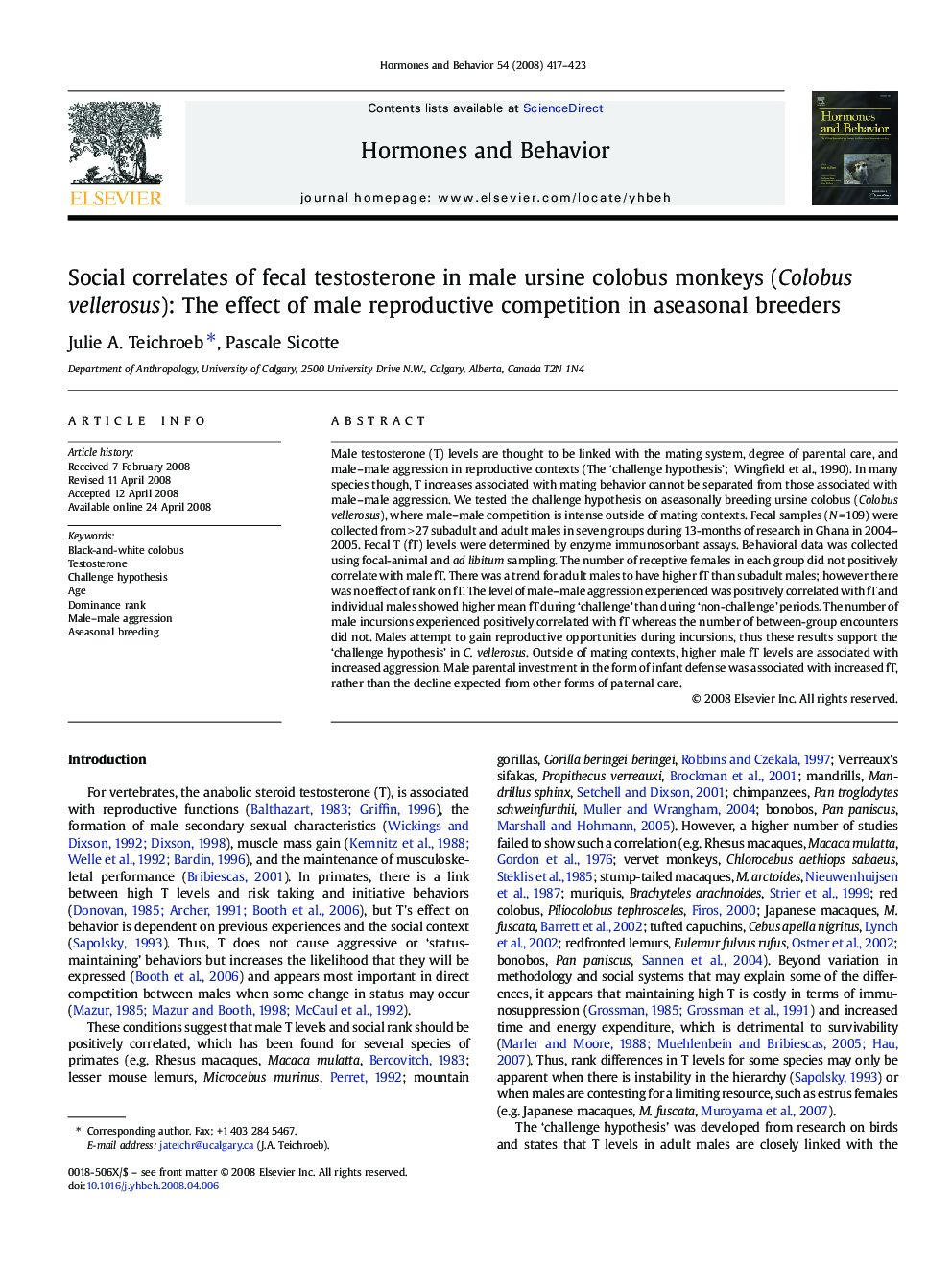| کد مقاله | کد نشریه | سال انتشار | مقاله انگلیسی | نسخه تمام متن |
|---|---|---|---|---|
| 322887 | 540280 | 2008 | 7 صفحه PDF | دانلود رایگان |

Male testosterone (T) levels are thought to be linked with the mating system, degree of parental care, and male–male aggression in reproductive contexts (The ‘challenge hypothesis’; Wingfield et al., 1990). In many species though, T increases associated with mating behavior cannot be separated from those associated with male–male aggression. We tested the challenge hypothesis on aseasonally breeding ursine colobus (Colobus vellerosus), where male–male competition is intense outside of mating contexts. Fecal samples (N = 109) were collected from > 27 subadult and adult males in seven groups during 13-months of research in Ghana in 2004–2005. Fecal T (fT) levels were determined by enzyme immunosorbant assays. Behavioral data was collected using focal-animal and ad libitum sampling. The number of receptive females in each group did not positively correlate with male fT. There was a trend for adult males to have higher fT than subadult males; however there was no effect of rank on fT. The level of male–male aggression experienced was positively correlated with fT and individual males showed higher mean fT during ‘challenge’ than during ‘non-challenge’ periods. The number of male incursions experienced positively correlated with fT whereas the number of between-group encounters did not. Males attempt to gain reproductive opportunities during incursions, thus these results support the ‘challenge hypothesis’ in C. vellerosus. Outside of mating contexts, higher male fT levels are associated with increased aggression. Male parental investment in the form of infant defense was associated with increased fT, rather than the decline expected from other forms of paternal care.
Journal: Hormones and Behavior - Volume 54, Issue 3, August 2008, Pages 417–423